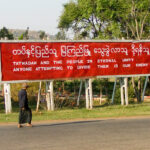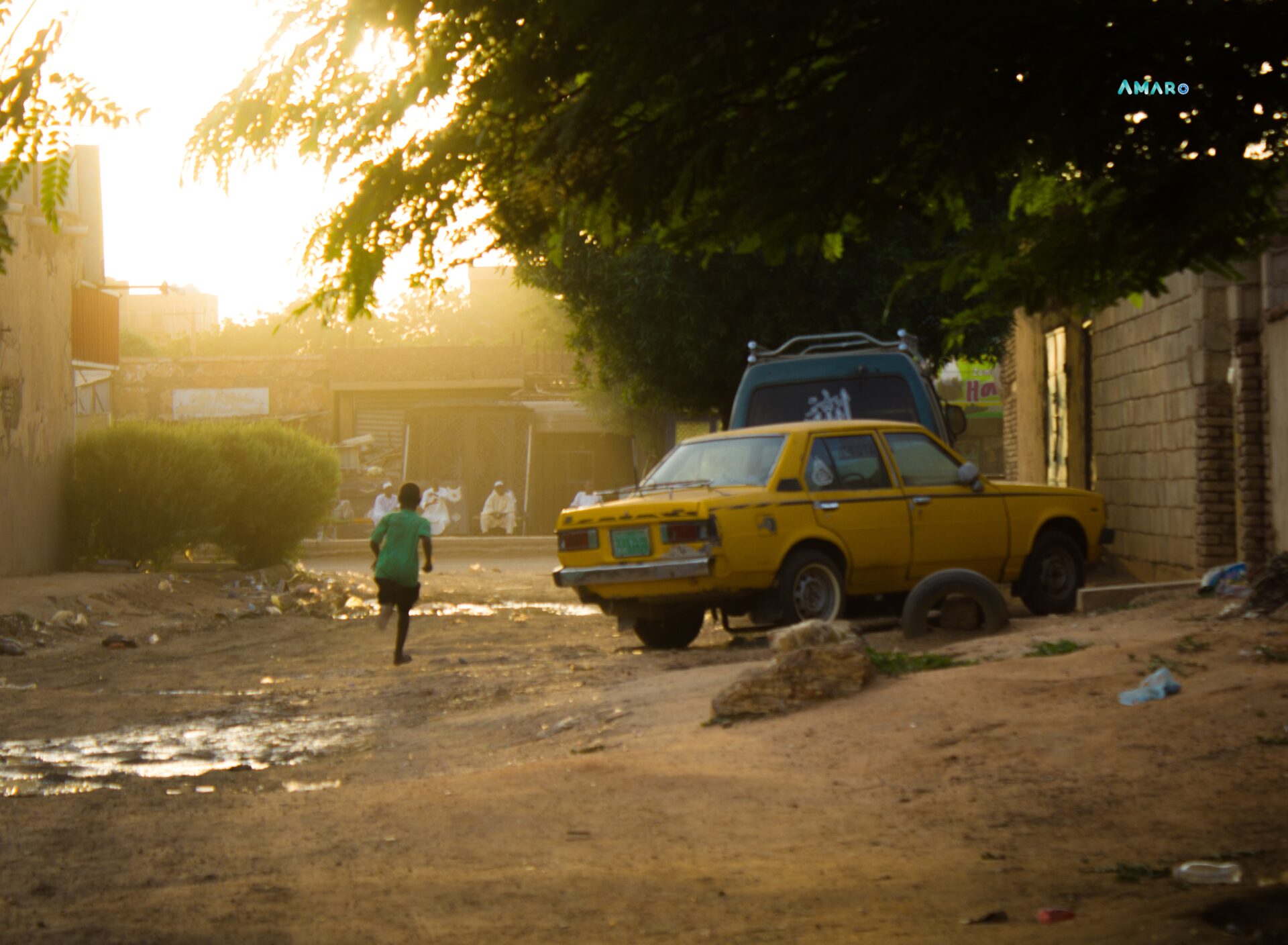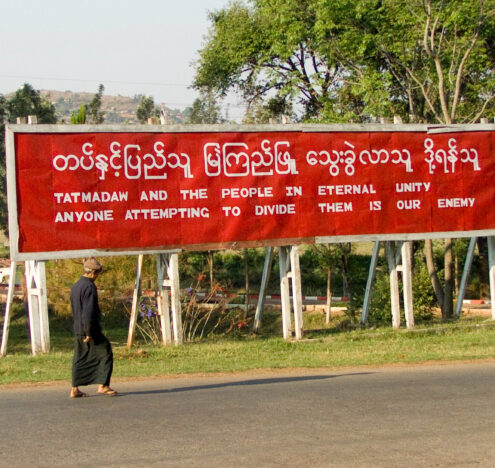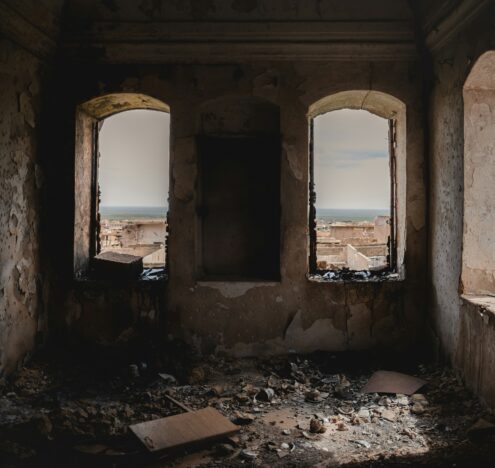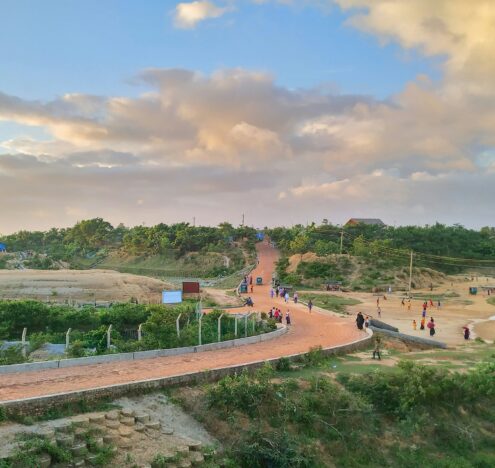Sudan has become the latest hotspot for various forms of violations of international humanitarian law and international human rights law. Saying that civilians have borne the brunt of this new armed conflict may sound familiar. Yet, warring parties in Sudan have demonstrated an appalling neglect of their obligations, the primary one being to avoid targeting civilians.
The conflict in Sudan follows a worrying trend of parties in conflict taking insufficient precautions to prevent and reduce civilian harm, and instead shirking their responsibilities by playing the “collateral damage” card. The most recent armed conflicts from Ethiopia to Ukraine, Myanmar, Yemen, and Syria, have shown how state and non-state armed actors are failing to safeguard civilians from harm as required by international humanitarian law. As a result, civilians account now for nearly 90% of causalities in armed conflict. This means that the number of civilians injured and killed in armed conflict tends to be higher than the number of deaths among combatants.
This alarming trend has been compounded by a lack of accountability, perpetuating a cycle of impunity that parties of the conflict have become adept at exploiting.
More than battlefield statistics, civilians are individuals with families, dreams, and hopes. They must be protected.
The Winner-Take-All Mentality in Sudan
In Sudan, fighting between the Sudan Armed Forces (SAF) and the Rapid Support Forces (RSF) has grown in intensity since April 15, 2023, causing massive displacement, significant civilian casualties, and triggering a humanitarian catastrophe. Both sides of the conflict have shown little regard for negotiated ceasefires, instead, they seem intent on securing a winner-takes-all victory by any means, without regard for women and children who bear no arms.
First, parties to the conflict appear to be deliberately targeting civilians and civilian infrastructure. Scenes of horror have unfolded in El Geneina, West Darfur, where women, men, and children have been killed primarily because of their ethnicity. Last week, the UN confirmed that at least 87 people, including women and children, were buried in a mass grave outside El Geneina. Last month, Sudanese refugees who fled to Chad also gave chilling accounts of members of RSF and local militias directly shooting at civilians as they tried to flee. While it is difficult to know the exact death toll, Sudan’s Professional Pharmacist Association reported that at least 11,100 people have been killed in El Geneina alone since the fighting erupted at the end of April.
Warring parties are also accused of perpetrating conflict-related sexual violence, primarily against women and girls. Some of the victims were as young as 12 years old. There have also been reports of looting, and burning homes and displacement camps. According to observers and members of the Sudanese diaspora, an ethnic cleansing may be underway in West Darfur, and if left unaddressed, the world may witness a repeat of the 2003 genocide.
Civilians account now for nearly 90% of causalities in armed conflict. This means that the number of civilians injured and killed in armed conflict tends to be higher than the number of deaths among combatants.
Second, warring parties have established bases in civilian facilities, such as hospitals, and have taken cover in civilian buildings, increasing the risk of civilians being targeted. For instance, RSF fighters have turned residential areas into battlefields, exposing residents to deadly harm. To the extent feasible, warring parties must avoid deploying in or near densely populated areas and should remove civilians from the vicinity of military objectives.
Third, warring parties in Sudan have regularly used explosive weapons with wide area effects — tanks, artillery, rockets, and air-delivered munitions — in crowded cities and towns, including the capital Khartoum, and El Geneina, in West Darfur. The use of such weapons has caused widespread devastation of infrastructure critical for access to electricity, water, and medical care. Dozens of hospitals have been damaged since the start of the conflict, depriving the population of access to lifesaving care. SAF have regularly carried out airstrikes in the capital, hitting civilian buildings and infrastructure, and killing civilians. Earlier this month, at least 22 people were killed in an airstrike in Dar es Salaam neighborhood. Last month, at least two airstrikes on a market and a residential area killed respectively 8 and 17 civilians, including several children. Rather than anomalies, these cases are indicative of a systematic failure by the parties to adopt measures to protect civilians. These forces must be reminded that failing to do so can amount to war crimes.
Fourth, humanitarian organizations have been regularly targeted by warring parties. At least 28 aid and health workers have been killed since the fighting started on April 15, 2023. Humanitarian warehouses, offices, and assets have been frequently attacked, forcing several aid organizations to suspend or limit their work in the most affected areas. As a result, people in need of assistance have been deprived of relief and medical care. Until today, access to humanitarian aid to West Darfur has been severely hindered, which may result in a significant number of indirect deaths of civilians.
These events occurred as warring parties violated one ceasefire after another, showing little willingness to stop the bloodshed. Peace talks were eventually suspended last month as both sides kept fighting. While it is critical to bring parties to the conflict to agree to a long-term ceasefire, to abide by the Jeddah Declaration to protect civilians, and to create the conditions that will pave the way to a peaceful resolution, those who killed, injured, abused, raped, and kidnapped civilians will need to be held accountable. The ICC’s announcement last week to open a probe into the recent atrocities perpetrated in Darfur underscores the urgency for action and the need for all international and regional actors to cooperate with the Court to hold accountable all perpetrators of crimes. It is an opportunity to not repeat the same mistakes of the past.
The genocide in Darfur in 2003 should serve as a lesson. Allowing those who perpetrated civilian harm to walk free runs the risk of allowing a new round of horrors and atrocities to be committed again in the future. The conflict in Sudan is a stark reminder that when civilian lives are brazenly disregarded, the world must take action to protect them.


